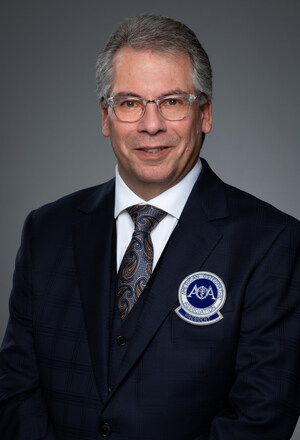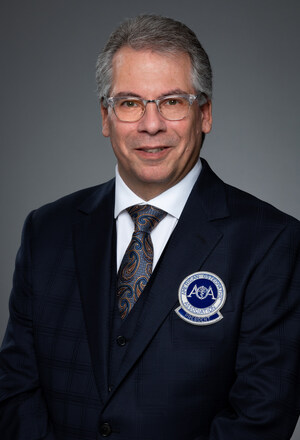
Concussions and Student Athletes: When is it Time to Get Back in the Academic Game?
LAS VEGAS, Oct. 3, 2013 /PRNewswire-USNewswire/ -- Learning their child has sustained a head injury during a school sporting event is among every parent's worst fears, and with recent reports about the long-term effects of concussions on professional athletes dominating the news, their fears are not unfounded.
While parents and coaches are careful about monitoring a student athlete's return to sports, Joelle S. Rehberg, DO, an osteopathic family and sports medicine physician, cautions that parents and teachers should allow students ample time to return to their academic pursuits as well. Dr. Rehberg shared her experiences treating student athletes with concussions during the American Osteopathic Association's (AOA) OMED 2013, the Osteopathic Medical Conference & Exposition in Las Vegas.
"When I see a student with a concussion, I caution that they need time to rest and let their brain heal properly," says Dr. Rehberg. "Often they are anxious about their return to the game, but I remind them and their parents that they need to set a time frame for their return to normal classroom work as well."
How Long Until a Concussed Student Can Return to School?
Dr. Rehberg stresses that it is important to remember that every student is different and some might have a longer recovery than others. Some factors to consider include:
- The student's age or grade level in school. For older kids it is harder to miss time in the classroom because of the difficulty of their courses. However, a heavier class load can cause more stress to them as they return to school.
- Pre-existing academic difficulties also need to be considered. A student with ADHD or dyslexia might require more time before returning or need extra help upon getting back to classes.
- The time of school year can also matter. If the student is in the middle of final exams, extra considerations might be needed.
What is the Game Plan?
- It is important that all the players be on the same page for a student's return to the classroom. Beyond the student, parents, teachers and coaches, this team includes school nurses, guidance counselors and the school's athletic trainers all of whom should know about the student's concussion and how they are progressing.
- If possible, the student should make a slow return to school. This could mean only attending classes in the morning and taking a half day off.
- Some academic accommodations could be necessary upon return. For instance, Dr. Rehberg recommends the student not try to take notes the first couple of days back, but instead gets them from a friend or handouts from the teacher.
- Stay out of the gym. Dr. Rehberg says physicians should not only recommend that a student skip gym class participation, but that they stay out of the gym entirely to avoid bright lights and loud noises from gym class activities. Also, they risk getting hit with a ball if they are sitting on the sides lines.
"I like to remind students and their parents that they will need their brain for life and keeping it healthy is the number one concern," Dr. Rehberg concludes.
About the American Osteopathic Association
The American Osteopathic Association (AOA) proudly represents its professional family of more than 104,000 osteopathic physicians (DOs) and osteopathic medical students; promotes public health; encourages scientific research; serves as the primary certifying body for DOs; is the accrediting agency for osteopathic medical schools; and has federal authority to accredit hospitals and other health care facilities. More information on DOs/osteopathic medicine can be found at www.osteopathic.org.
SOURCE American Osteopathic Association







Share this article